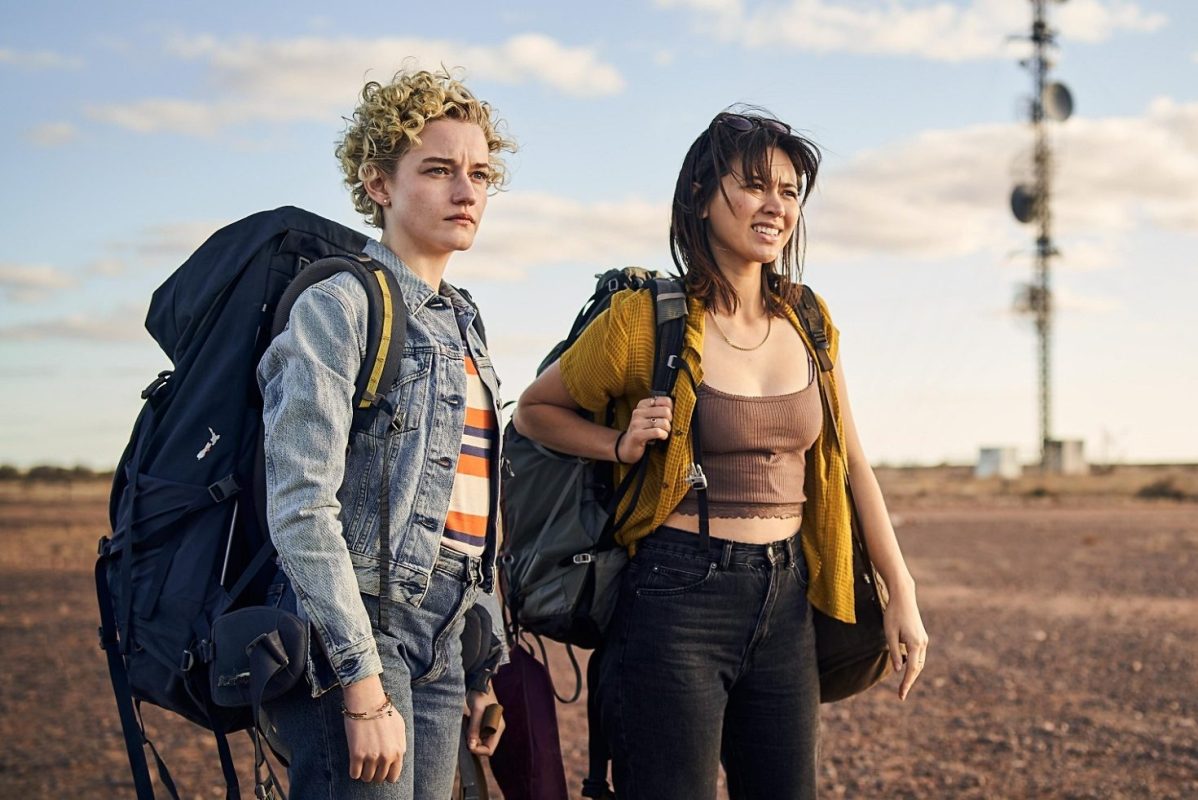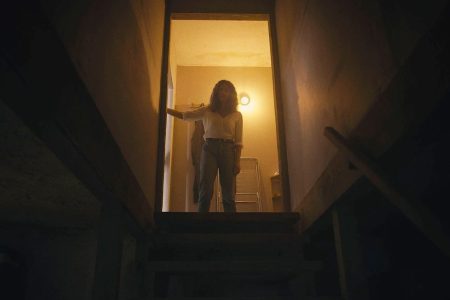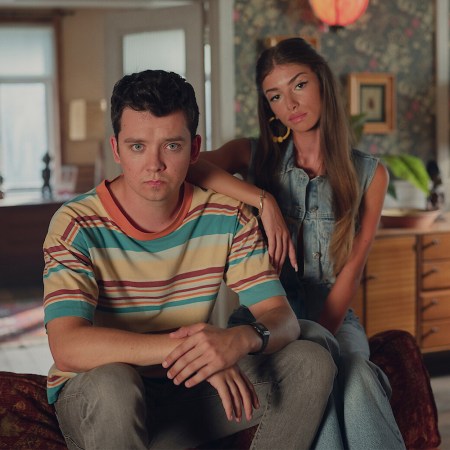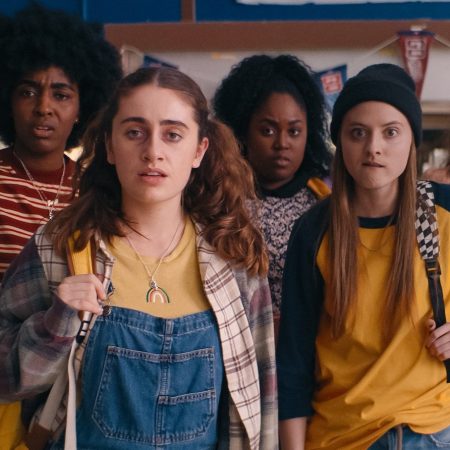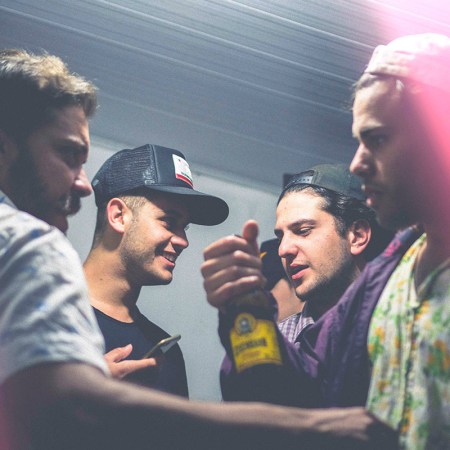On It’s Always Sunny in Philadelphia, self-styled master seducer and undiagnosed sociopath Dennis Reynolds elucidates a tactical concept he deems The Implication: in a location so remote that a woman has no means of escape, she will never reject the advances of a man for fear of what could happen if she did. Under this condition, he does not need to coerce or overtly threaten her, knowing full well that the female imagination will do that work for him. An air of muted menace will be more than enough, putting the predator in a sweet spot of plausible deniability that nonetheless leaves his quarry with a Hobson’s choice between reluctant assent and the unspeakable. As Dennis explains it, he has no intention of harming anyone, because he knows he won’t have to. The Implication can say it all without anyone uttering a word.
This tacit potential for sexual violence hangs over Kitty Green’s chilling The Royal Hotel, which places a pair of comely American backpackers in the Outback’s most belligerent dive bar like a pair of juicy T-bone steaks flung into a dog pound. They’ve come to pour beers until they can put together enough money for the next leg of their Australian vacation, though they soon realize that they’re really being paid to withstand the sort of objectification inherent in the previous sentence’s analogy. Green’s filmography catalogues the myriad methods that men use to subjugate women in the workplace, a notion she’s now transplanted from the white-collar office space to a barely professional environment with a loose-to-nonexistent set of rules, where the line between micro- and macro-aggressions grows hazier with every downed pint. It’s become something of a traveler’s meme that in Australia, everything wants to kill you — the fauna grown gigantic in island isolation, the ocean replete with untold hazards, the unforgiving bastard sun. For the fairer sex, every moment spent outnumbered by men amplifies a mild, banal discomfort to a worst-case scenario with life-and-death stakes.
Although Hanna (Julia Garner, one of the best we’ve got in her age bracket) is introduced strutting against a neon background while EDM pounds in the background, then latches her face onto a strapping stranger (Herbert Nordrum, of The Worst Person in the World note) seconds later, she and Liv (Jessica Henwick) fit broadly into the time-tested bestie dichotomy of fun one/responsible one. When the work-placement lady warns them that they’ll face more than their fair share of attention from the opposite sex on the proposed assignment in a secluded mining community — in the very real respect that this is a horror film, she’s the ominous gas station attendant who says some stuff about the murders that took place at the cabin in the woods all those years ago — Hanna looks nervous while Liv makes the face I make upon sidling up to a Chinese buffet. At the pub so grubby that the sign reading “The Royal Hotel” comes to sound like sarcastic mockery, the undergrads meet the barmaids they’ve come to replace, a pair of reprobates all too happy to flash their cans for the howling patrons’ amusement once everyone’s passed the right benchmark of inebriation. “In a few weeks, that’s gonna be us,” Liv laughs, unfazed by the expression of terror plastered on her friend’s face.
Green lays the unease on real thick without straying past the unnerving bounds of The Implication, the dire state of normalized rape culture ensuring that she needn’t worry about straining plausibility. The plot follows a straightforward trajectory predictable in its grim inevitability; the hungry-eyed locals grow increasingly brazen as the girls individually assess and reassess how urgent their peril might be. Liv falls into the cool-girl trap of priding herself on the volume of misogyny she’s able to withstand, whereas Hanna can’t quite tell how much of her anxiety is just in her head, not helped by everyone insisting that she loosen up and be a sport about the bawdy jokes and persistent flirtations. On her breakout The Assistant, Green excelled in singling out the small gestures of emotional warfare in a toxic power producer’s fiefdom of cubicles, and she likewise shows an adroitness for the specific texture of harassment allowed to flourish in this setting. For women, taking work as a bartender means subjecting yourself to a diabolical system of incentivized tipping that rewards agreeability and punishes any attempt to preserve dignity.
A born-and-bred Aussie herself, Green can fairly bare both resentment and some passing affection (the heartiest of the mostly faint laughs at the Toronto International Film Festival’s press screening came when a regular banned the night before sits at his designated seat, undeterred and nonchalant) for the home she left on her path to Los Angeles. As in the Ozsploitation classic Wake in Fright, a rowdy overdose of testosterone classifies the Australian man as a brutish species all his own, feeding into a national character with roots in a penal colony full of undesirables too bestial to stay in England. The seemingly decent Matty (Babyteeth scene-stealer Toby Wallace) has trouble hearing the word “no” after a pleasant day outing he clearly believes has earned him access to his companions, while the glowering “Teeth” (James Frecheville) conceals ugly intentions beneath a polite, soft-spoken demeanor. Liv tries to reassure Hanna by pointing out that they’ve held their own against plenty of grabby bros back home, but they’re a different breed Down Under. At their worst, they might even be monsters.
“Barbarian” Offers a Delightful Twist on Horror Movie Conventions
The tale of an Airbnb rental gone wrong has plenty of tricks up its sleeveThe cinematography works within a low-key realism as its default, until it adopts scary-movie visual grammar to cast a more stylized shadow over the naturalistic atmosphere of tension. Whatever misgivings Hanna might have had about her instincts to get the hell out, they vanish when she glimpses the most hostile drunkard of the bunch in the doorway of her upstairs apartment, lurking with the deadened stare of the less-than-lucid. This sequence conjures high-grade dread with little more than the sight of footsteps blocking the crack of light under a door, another piece of the everyday imbued with a foreboding aura through judicious, unexpected choices in camera placement and editing. On The Assistant, this technique dramatized the stomach-churning daily order of employment under a guy who might as well be named Schmarvey Schmeinstein, but there’s a new psychological subjectivity this time around. We see the home intruder sequence through Hanna’s narrowed gaze with a handful of POV shots deployed to expertly unsettling effect, and Green’s pattern of pulling back just short of tragedy continues to complicate the difference between caution and paranoia.
This tendency to dangle the possibility of violation without following through ultimately paints Green into a corner, however, as she figures out how to wrap up her story and decides where she wants her latest articulation of harried feminism to land. The raised-fist defiance of the final shot calls to mind an oft-repeated slogan among women at the end of their patience with patriarchal institutions, and its evocation sounds out an optimistic note discordant against the sober-minded cynicism about gender dynamics up to that point. Where The Assistant concluded with a bitter, solemn acquiescence to entrenched power structures, The Royal Hotel counters that the fed-up need only decide to throw off their shackles and set out on their own. This is easier suggested than done; that shot doesn’t let the fact of the unnavigable 10-mile trek to town trip up its action-hero stride.
Whether this choice scans as false triumph or the creative license of wish fulfillment, it caps off an otherwise stirring and stomach-churning broadside against the unfairer sex, exceptional in its revolting believability. Ironically for a film doused in alcohol, it takes a sober-minded view of a societal disorder that requires minimal exaggeration to rival the stuff of slasher flicks. Life’s assorted cruelties train women to wait for some omnipresent danger to strike, and Green brings an awful immediacy to that second-nature guardedness. If the feeling of clutching keys between your fingers during a dark walk in an unfamiliar part of town could be crystallized in cinematic form, this would be it.
This article appeared in an InsideHook newsletter. Sign up for free to get more on travel, wellness, style, drinking, and culture.
